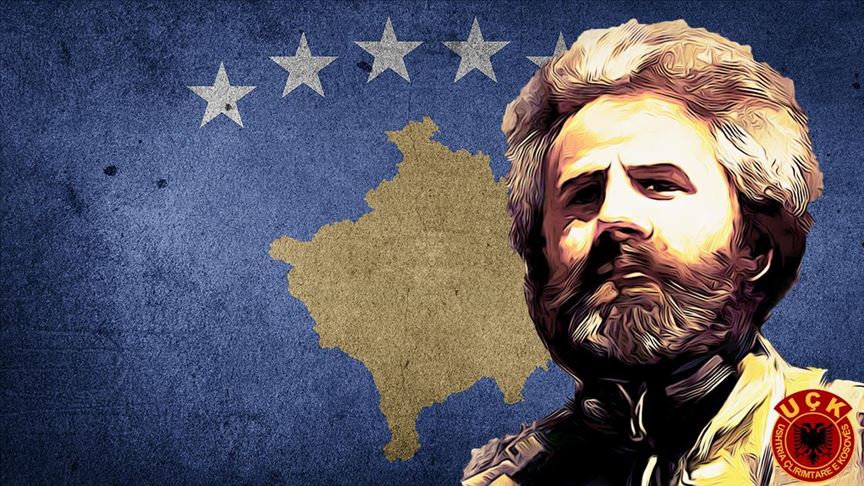He was at the forefront of popular movements: Who is Adem Jashari?
He was at the forefront of popular movements at a young age in the fight against Yugoslav/Serbs. Adem Jasjari, who organized many actions under the name of the Kosovo Liberation Army (UCK), took his place on the stage of history as the natural leader of the Kosovo Independence movement.

Adem Jashari was born on November 28, 1955, in the village of Prekaz, Drenica. Drenica was a region where the struggle against Yugoslavs/Serbs became traditional, and Jashari literally grew up with this struggle. Taking the struggle of the village leaders as an example, Jashari was at the forefront of popular movements at a young age.
Jashari, who started actively working for independence together with Emin Latit, Tahir Meta, and his brother Hamza Jashari in 1981, carried out his first armed action in 1991. When the desired result could not be obtained from the uprising against the Serbs, he went to Albania with nearly 100 Albanians and started to give weapons training to the volunteers.
When the Kosovo Liberation Army (UCK), of which he was one of the founders, started its activities, he returned to the land where he was born and raised as the Drenica Regional Commander.
Adem Jashari (born Fazli Jashari; 28 November 1955 – 7 March 1998) was one of the founders of the Kosovo Liberation Army (KLA), a Kosovo Albanian separatist militia which fought for the secession of Kosovo from the Federal Republic of Yugoslavia during the 1990s.
His first warm contact with Yugoslav forces took place in December 1991. The house where Jashari and his friends were staying was surrounded by federal government forces and Jashari was asked to be handed over. Jashari, who escaped from this siege thanks to the local people flocking to the vicinity of the house as a result of the rapid spread of the news, began to organize attacks against the Serbian forces.
Adem Jasjari, who organized many actions under the name of UÇK, took his place on the stage of history as the natural leader of the Kosovo Independence movement and now attracted all the attention. The federal government thought it would reach a solution by killing Jashari and his close friends. Acting with this idea, the government surrounded the village of Prekaz, where Jashari and his family were staying, with 4 thousand soldiers in March 1998. Jashari refused to surrender within the two-hour period allowed by the Serbs; He went to full defense with his mother, father, wife, children, brother, and other close relatives.
When Serbian soldiers started an intense attack with their heavy weapons, the UÇK unit, which was a few kilometers away from the region, heard about the situation and decided to go for help and reached Adem Jashari by radio:
UCK Soldiers: Our Commander! Are you listening?
Adem Jashari: Yes, I'm listening to you.
UCK soldiers: Resist, Commander, resist! We are ready to come to help. Wait, Commander!
Adam Jashari: No. No way. They are many in number and have all kinds of heavy weapons. I will fight until my last bullet. Stay where you are!
UCK soldiers: But…, Commander…!
Adem Jashari: I told you no way. Stay where you are! Multiply! Fight! If you come here now, you will all die. There's no point in this. If this happens, who will continue our war?!
UÇK soldiers: But…, Commander…, you…!
Adem Jashari: Don't be afraid! Today is not the day I die, today is the day I will be born!
Jashari and his family resisted the attacks of the Serbs for 3 days. As a result of the clashes that continued on March 5, 6, and 7, 52 people in the house, including his mother, father, children, and wife, lost their lives.
The sacrifice of Adem Jashari and his family frustrated the expectations of the Serbs and spurred the Albanian resistance. When the new process, which started with the increase in participation in the UÇK, extended to the independence of Kosovo, Jashari was remembered as a national hero and a nation commemorated him with one voice:
